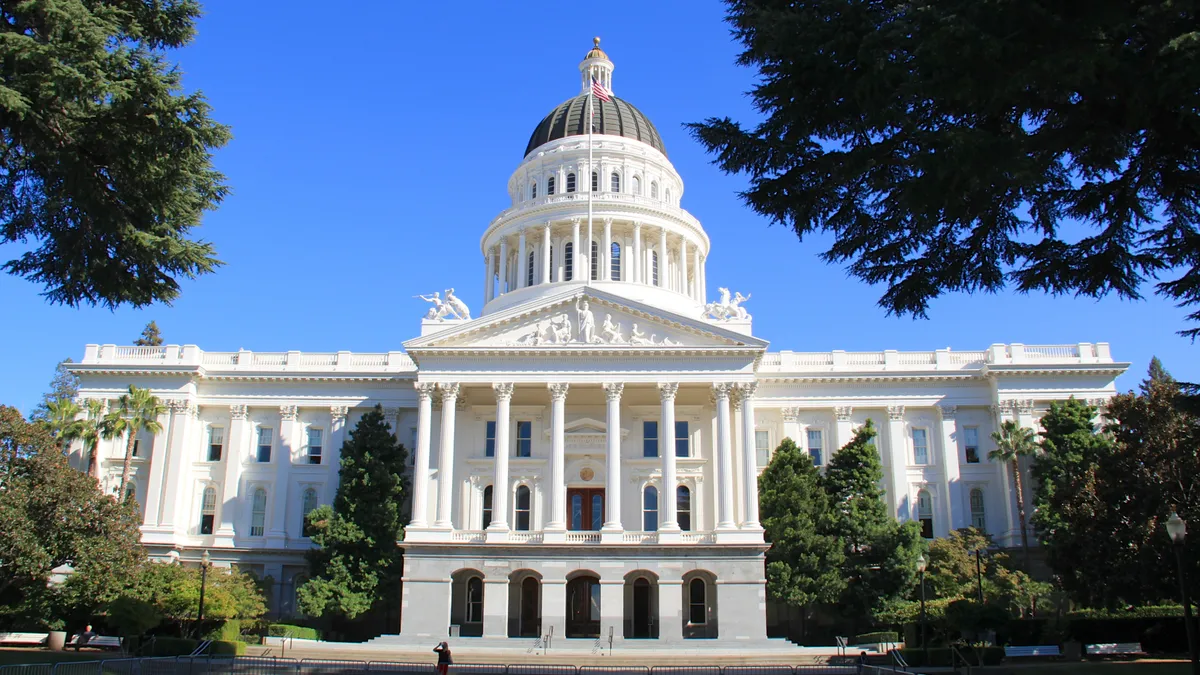Dive Brief:
- Legislation put forward in the California State Assembly by five Democratic lawmakers seeks to level the playing field for college admissions in the state just weeks after an alleged nationwide bribery scheme rocked the world of higher education.
- Among the proposals are requiring at least three administrators — including the school's chief executive — to sign off on special admissions, banning preferential admissions for relatives of donors or alumni, studying the usefulness of SAT and ACT tests, and requiring some private college admissions consultants to register with the state.
- In interviews with The Chronicle of Higher Education, admissions experts were wary of some proposals, noting the potential trade-off between millions of dollars in donations and a seat. However, experts favored other policies, such as requiring multiple approvals for special cases. California's move could prompt similar action by other states, according to The Chronicle.
Dive Insight:
Although the alleged scheme by a college admissions consultant and a few dozen parents to buy seats for their children at elite universities relied on largely illegal means, it pointed out areas in the admissions process ripe for exploitation. Among them is the lower-friction process through which special admissions such as student-athletes and the children of donors are considered. It also put fresh light on the legal means by which wealth can buy advantage.
By adding more and higher-profile checks on special admissions and banning preferential treatment of donor and alumni relatives, the California legislators hope to make something like this harder to pull off in the future.
"This legislative package of college admissions reforms will ensure that there are adequate checks and balances to catch fraudsters, but more importantly to protect the sanctity of the admissions process," said Kevin McCarty, one of the lawmakers putting forward the legislation, in a statement. (Separately, Sen. Ron Wyden, a Democrat from Oregon, has said he plans to propose federal legislation ending tax breaks for donations made to an institution where a relative is being considered for admission.)
In the wake of the scandal, admissions, crisis management and legal experts cautioned colleges and universities to evaluate their own admissions processes for weak spots and to be mindful of how the alleged bribery scheme may be perceived by students already underrepresented in higher ed.
"One thing colleges need to pay really close attention to is offering a counter-narrative to (this story) because if everybody feels the system is rigged, who's the least likely to apply?" said Annie Reznik, executive director at the Coalition for College, in an interview earlier this month.
The admissions scandal also raised the perennial issue of the role of selectivity in students' college decisions, with parents paying millions to get around the ultra-low admissions rates of Georgetown, Stanford and Yale universities, among others.
Those low rates continue to be a selling point for prospective students, resulting in a chain reaction begetting more applicants and, as a result, even lower rates. That continues to be the case this admissions season, The New York Times reported. Amid the fallout over the scandal, some observers suggested colleges focus on alternatives to the hyper focus on selectivity, such as admitting more students and awarding seats based on a lottery.
Moves away from selectivity will likely be gradual. Stanford said last year it would stop promoting such data during enrollment periods, and U.S. News & World Report recently dropped acceptance rates from its popular Best Colleges ranking.













